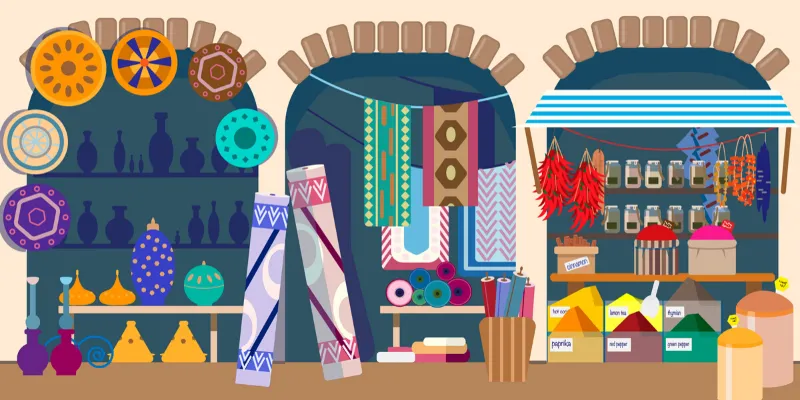India’s MSME story: Jobs, opportunities and impact of growth on the retail sector
As a major employer of India’s informal workforce, MSMEs have been instrumental in manufacturing goods at reasonable rates, helping retailers maintain moderate margins even during the dark days of 2020.
In India, if any segment can be called the silent pillar of the economy, it is the MSME sector. A CII report reveals that MSMEs numbered 63 million units in FY20, with most located in Bharat rather than in India’s urban centres.
It’s no surprise that MSMEs account for 6.11 percent of manufacturing GDP, 24.63 percent of services GDP, 33.4 percent of aggregate manufacturing output, and around 45 percent of India’s overall exports. Besides, MSMEs employ more than 120 million people, comprising almost 40 percent of India’s informal workforce.
The sector is an icon of sustainable and inclusive development, offering enormous employment and entrepreneurial opportunities throughout India.
MSMEs save the day
Unfortunately, the pandemic has had a massive impact on the sector. Despite the 2020 downturn, the sector was instrumental in keeping the overall economy going. This was possible because of its major presence in the manufacturing of varied products across verticals. Though the stringent lockdown in March 2020 forced almost all brick-and-mortar stores to shut down, many MSMEs and traditional retailers kept operations running by going online.
With legacy retailers’ margins squeezed, MSMEs came to their rescue by offering the same category of products at affordable price points. Furthermore, by joining hands with online retailers, products were delivered directly to consumers at their homes while following mandated hygiene and safety standards. Significantly, the switch to the online model raised awareness among buyers about the safety of contactless deliveries.
Although restrictions have been eased, thanks to the higher customer satisfaction from online buying experiences, people prefer purchasing products from the safety of their homes. In many cases, online shopping can ensure discounts, which may not be available offline.
But as things start to return to normal in the months ahead, big retailers must continue sourcing goods from MSMEs and other small players who adhere to the minimum quality parameters. Supporting MSMEs in the post-pandemic period is critical to ascertain that the high unemployment numbers of 2020 are reversed at the earliest.
Like MSMEs, India’s $854 billion retail industry was also badly affected last year. Therefore, retailers will benefit from working in tandem with MSMEs. Additionally, a hybrid business model combining both offline and online channels can pay the best dividends.
As per a survey by NASSCOM and Technopak, with more than 35 million employees, the retail sector comprised 8 percent of the country’s total workforce. Since the pandemic has tilted the preference of many consumers towards online shopping, a hybrid model will generate greater growth prospects for retailers and MSMEs. In turn, this will spur higher employment and exports as well as more-inclusive retail growth via the participation of MSMEs.

Why MSMEs need support
The online and hybrid models are here to stay, and that is apparent from the numbers of the most convenient tool of digital sales – smartphones. In 2021, as per industry estimates, the country’s smartphone users are expected to cross 760 million.
With increased digitisation, MSMEs can register with online platforms and sell products anywhere across the country without any physical presence. Such sales can occur with minimal investments, unlike conventional stores that require sizable one-time investments and recurring maintenance expenses.
Best of all, the digital domain offers a level playing field for MSMEs to showcase their wares alongside the organised players. Moreover, many online marketplaces provide help to small manufacturers in showcasing products more professionally via videos and other virtual means, driving higher sales. In turn, millions of jobs are created in upstream and downstream segments that form the retail value chain.
Considering this backdrop, institutional support is the need of the hour for hard-pressed MSMEs. Although the MSME Ministry had its allocation doubled in the 2021-22 Union Budget, most of this comes under the GECL (Guaranteed Emergency Credit Line) facility that provides MSMEs liquidity and credit guarantees. But with most units unregistered and informal, they won’t be eligible for such loans. This is also the case with the production-linked incentive scheme, where informal units fall outside its ambit.
These ground realities should be taken into account and the norms tweaked so unorganised entities can benefit from the allocations. As employment generation assumes importance due to accelerated job losses in 2020, the focus must shift to MSMEs in manufacturing and retail to achieve this objective.
Here again, the central and state governments should facilitate the transition of MSMEs from the informal to the formal sector. The goals of sustainable, equitable and inclusive development will then be achieved sooner rather than later.
Edited by Kanishk Singh
(Disclaimer: The views and opinions expressed in this article are those of the author and do not necessarily reflect the views of YourStory.)









